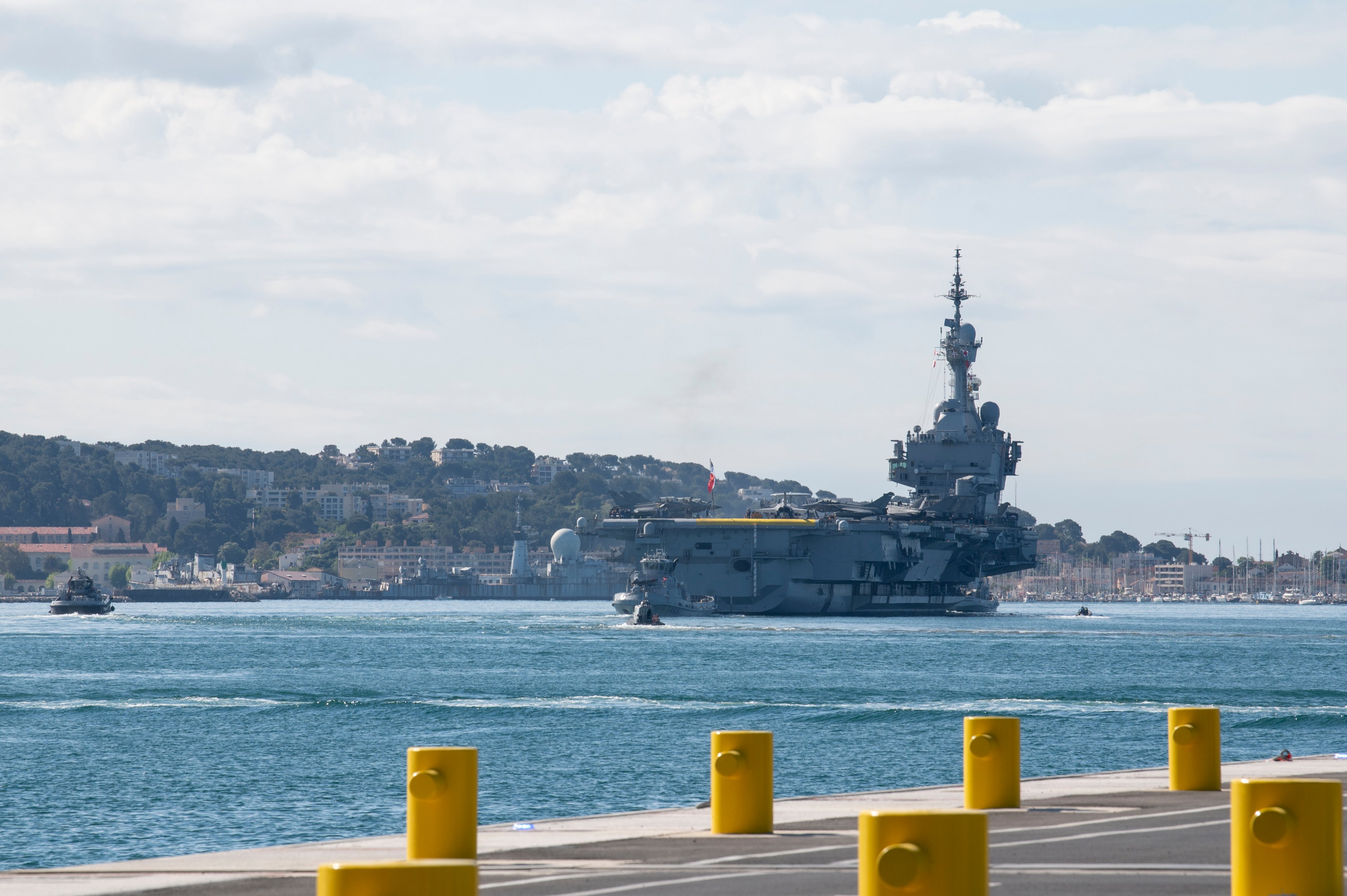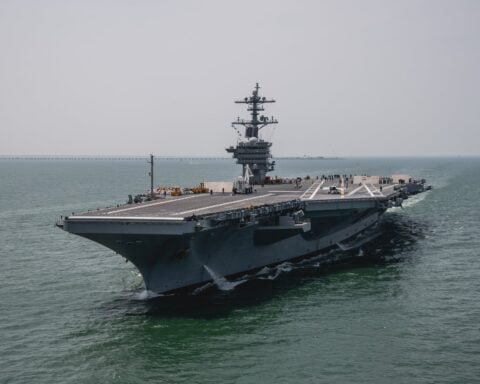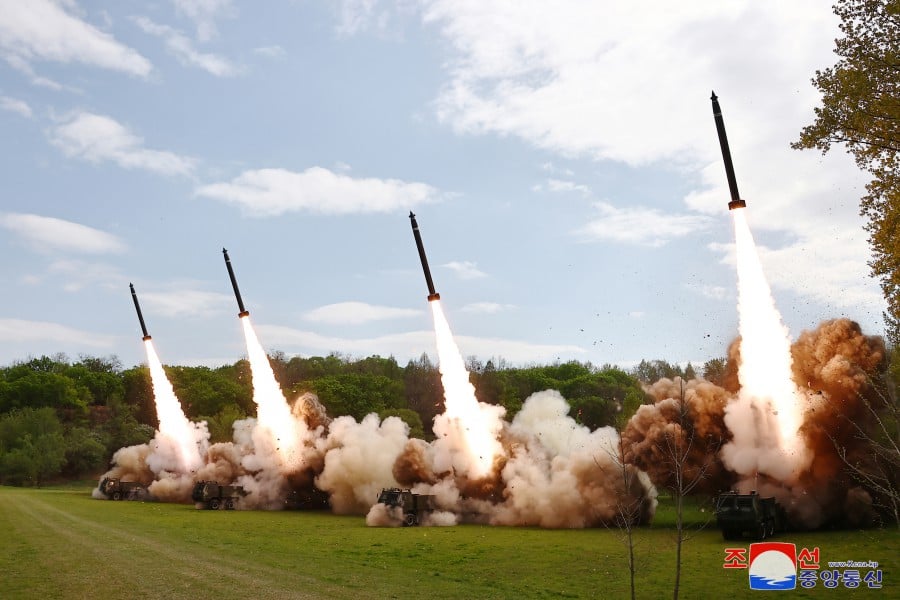![The littoral combat ship USS Fort Worth (LCS 3) conducts routine patrols in international waters of the South China Sea near the Spratly Islands as the People’s Liberation Army-Navy [PLA(N)] guided-missile frigate Yancheng (FFG 546) sails close behind, on May 11, 2015. US Navy photo.](https://news.usni.org/wp-content/uploads/2016/09/1927317.jpg)
The experts from the U.S. Naval War College and the Center for Strategic and International Studies agreed at a House Armed Services seapower and projection forces subcommittee hearing yesterday that adherence to maritime law in the South China Sea is important not only for regional security but also for maintaining law of the sea elsewhere on the globe.
In addition to unanimously supporting the U.S. ratifying the United Nations Convention on the Law of the Sea, the experts testified that U.S. Navy freedom of navigation operations (FONOPS) needed to be bolstered.
Bonnie Glaser, CSIS’s senior adviser for Asia and director of the China Power Project, said she would do more FONOPS but conduct them “quietly and without fanfare.”
James Kraska, a professor of international law, oceans law and policy at the U.S. Naval War College’s Stockton Center for the Study of International Law, recommended not only bringing in allies like Japan to the FONOPS effort but said “I would also prioritize for the FON program the many many illegal claims that have never been challenged to my knowledge, such as the straight baselines that cut off the Hainan Strait, which China purports to view as internal waters. And that challenge has never been conducted as far as I know, or at least most likely since the Vietnam War.”
Glaser said she agreed that an ally such as Australia could be an effective partner in conducting FONOPS, either patrolling areas together or splitting up and covering more area But she worried about Japan’s participation.
“The Chinese are putting a great deal of pressure on Japan in the East China Sea, and the day that they sail a navy ship inside 12 nautical miles of a Chinese-occupied territory like Spratly, I worry that the Chinese are going to sail a navy ship inside the 12 nautical miles around the Senkakus,” she said.
“And that would be a very big price for Japan.”
Kraska, speaking from a maritime law perspective, said the U.S. Navy shied away from its full rights at sea when it conducted the first in a series of FONOPS missions last year with guided-missile destroyer USS Lassen (DDG-82). The Navy and Pentagon identified the operation as an “innocent passage” in which the warship did not use any weapons or radars or conduct any military drills while passing through an area the Chinese claimed as their own.
“I would not have selected innocent passage, which is the most restricted navigational regime of Law of the Sea, in order to challenge unlawful claims,” Kraska said.
“In particular, we have done so around some features which are not subject to appropriation by any state – for example, submerged features or low-tide elevations which can never, even if they were claimed by a state, they could never generate a territorial sea. So it would not make any sense to observe a territorial sea around a feature such as that,” he said, and an innocent passage operation implies a territorial sea exists.
![The littoral combat ship USS Fort Worth (LCS 3) conducts routine patrols in international waters of the South China Sea near the Spratly Islands as the People’s Liberation Army-Navy [PLA(N)] guided-missile frigate Yancheng (FFG 546) sails close behind, on May 11, 2015. US Navy photo.](https://news.usni.org/wp-content/uploads/2016/09/1927312.jpg)
“Why would we then recognize a putative territorial sea around a rock just because some other countries claims that they happen to own it?” he said.
To address this issue, “I would recommend that Mischief Reef (in the Spratlys) be overflow by aircraft. There is no national airspace above it, no matter which country tries to claim it, and there is no territorial sea around it. High seas freedoms and full overflight rights apply on those features,” Kraska said.
Beyond agreeing that the U.S. needs to be more direct in countering illegal Chinese territorial claims, the panelists also discussed how China was attempting to enforce those claims – not primarily through the People’s Liberation Army Navy’s fleet of gray-hull navy warships, but through the white-hull coast guard ships and the rarely discussed blue-hull maritime militia ships.
“Make no mistake, these are state-organized, -developed and -controlled forces operating under a direct military chain of command,” Andrew Erickson, a professor of strategy at the U.S. Naval War College’s China Maritime Studies Institute, said of the maritime militia ships, which are essentially fishing trawlers outfitted with strengthened hulls, guardrails to protect the hulls when ramming other ships, and water cannons to harass nearby vessels.
“This is a force that thrives in the shadows of plausible deniability, and I tried to make the case today that it is well within our power to shine enough light to dispel a lot of those shadows,” he said at the hearing. During last year’s Lassen FONOPS patrol, “small commercial craft with the hallmarks of maritime militia vessels approached [Lassen] provocatively, having apparently anticipated its presence. Who knows what contingencies they might have been practicing for or what footage they might have been capturing for later misuse. So before China is able to put the United States or one of our regional allies or partners in a misleading but precarious position of appearing to confront ‘innocent civilian fisherman,’ American officials must finally publicly reveal the third sea force’s true nature and deeds.”
Erickson said he worried that the maritime militia may turn on a U.S. warship, leading to a Gulliver’s Travels-type scenario with being Gulliver taken captive by the tiny Lilliputians. To avoid being stymied by this fleet – which he called little blue men, much like Russia’s ambiguous little green men – Erickson said the next administration needs to publish a comprehensive policy statement on freedom of navigation and consider how China employs all its assets to block that freedom at sea.
“We cannot tolerate a situation in which their navy bear hugs our Navy in search of best practices and diplomatic cameo (opportunities) as a kind of a good cop, while their other two sea forces, the coast guard and the maritime militia, play the role of bad cops doing the dirty work in the South China Sea,” Erickson said.
“So I think by looking at this issue comprehensively, by raising attention to it in Congress and asking the administration to do the same, by communicating all of this with resolve to our Chinese interlocutors, I think we can create a much better baseline and understanding in the South China Sea. It won’t solve all the problems, but it will reduce risk.”
Glaser raised a similar point, noting that the U.S. needs to make its position on freedom of navigation clear – and make clear that it is willing to take action if China will not comply.
“We have to be willing – not just able but willing – to put the United States on the line here and incur some risk,” she said.
“If we are willing to incur some risk then I think the Chinese will take us more seriously.”
She suggested that the Obama administration has been reluctant to do this because it has pushed hard to cooperate with China on important global issues like combating climate change and reaching a nuclear deal with Iran. Glaser said the administration may worry that putting pressure on the Chinese to cease destabilizing behaviors in the South China Sea would risk current and future collaboration on other issues, “but I think we can do both.”
Other suggestions raised during the hearing include full funding for the Maritime Security Initiative, slated for about $60 million this next fiscal year, as suggested by Glaser. Kraska recommended putting more U.S. warships in the South China Sea and the Pacific to boost presence and demonstrate a commitment to upholding maritime law. Stationing Littoral Combat Ships in Singapore is a good start, he said, but “hulls in the water matter” and more are needed.
Kraska also suggested that, absent the Senate ratifying the U.N. Convention on the Law of the Sea treaty, as all three experts recommended, the U.S. should comply with a Reagan-era policy that says “we will recognize those countries’ rights so long as they respect American rights and American freedoms that are reflected in that convention,” he summarized.
“My view is that the United States should be more true to that policy and, when appropriate, implement countermeasures, lawful countermeasures, against countries such as China to induce compliance with international law – meaning that I would recommend not recognizing Chinese rights to operate in the American territorial sea and the U.S. exclusive economic zone with military warships and aircraft if China tries to deny that right to the United States. The U.S. should inform Chinese warships and military aircraft that they are no longer entitled to conduct innocent passage in the U.S. territorial sea as they did in the Aleutian Islands last year, or conduct military activities in the U.S. exclusive economic zone as they now routinely do off the coast of Hawaii and Guam. And inform them that this is not reciprocal or tit for tat, but that this is a lawful countermeasure in international law.”
And finally, Kraska suggested that if China were not willing to accept the ruling of the Permanent Court of Arbitration, which this July sided with the Philippines that China had violated UNCLOS with its illegal claims, then there are other international organizations that can deal with the violations the tribunal outlined. The International Maritime Organization could address coast guard and maritime militia violations of International Regulations for Preventing Collisions at Sea (COLREGS), the International Civil Aviation Organization could address violations to its code, and the U.N.’s Food and Agriculture Organization could address the misuse of fishing vessels as an arm of the military.





